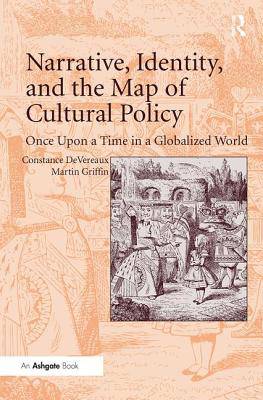
- Afhalen na 1 uur in een winkel met voorraad
- Gratis thuislevering in België vanaf € 30
- Ruim aanbod met 7 miljoen producten
- Afhalen na 1 uur in een winkel met voorraad
- Gratis thuislevering in België vanaf € 30
- Ruim aanbod met 7 miljoen producten
Zoeken
Narrative, Identity, and the Map of Cultural Policy
Constance Devereaux, Martin Griffin
Paperback | Engels
€ 52,95
+ 105 punten
Uitvoering
Omschrijving
The story of arts and cultural policy in the twenty-first century is inherently of global concern no matter how local it seems. At the same time, questions of identity have in many ways become more challenging than before. Narrative, Identity, and the Map of Cultural Policy: Once Upon a Time in a Globalized World explores how and why stories and identities sometimes merge and often clash in an arena in which culture and policy may not be able to resolve every difficulty. DeVereaux and Griffin argue that the role of narrative is key to understanding these issues. They offer a wide-ranging history and justification for narrative frameworks as an approach to cultural policy and open up a wider field of discussion about the ways in which cultural politics and cultural identity are being deployed and interpreted in the present, with deep roots in the past. This timely book will be of great interest not just to students of narrative and students of arts and cultural policy, but also to administrators, policy theorists, and cultural management practitioners.
Specificaties
Betrokkenen
- Auteur(s):
- Uitgeverij:
Inhoud
- Aantal bladzijden:
- 196
- Taal:
- Engels
Eigenschappen
- Productcode (EAN):
- 9780815399681
- Verschijningsdatum:
- 15/12/2017
- Uitvoering:
- Paperback
- Formaat:
- Trade paperback (VS)
- Afmetingen:
- 156 mm x 233 mm
- Gewicht:
- 359 g

Alleen bij Standaard Boekhandel
+ 105 punten op je klantenkaart van Standaard Boekhandel
Beoordelingen
We publiceren alleen reviews die voldoen aan de voorwaarden voor reviews. Bekijk onze voorwaarden voor reviews.











